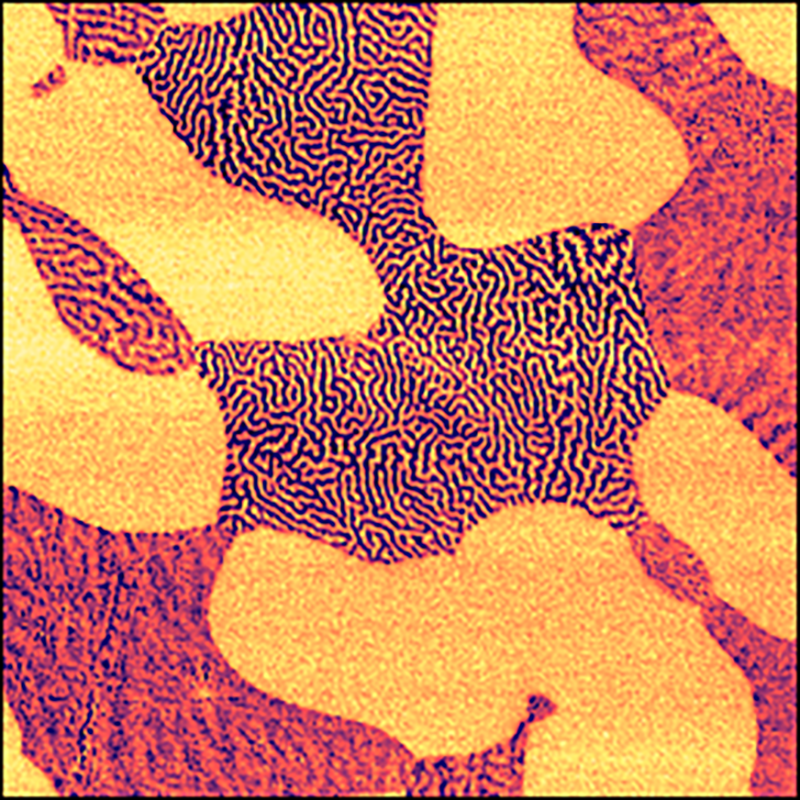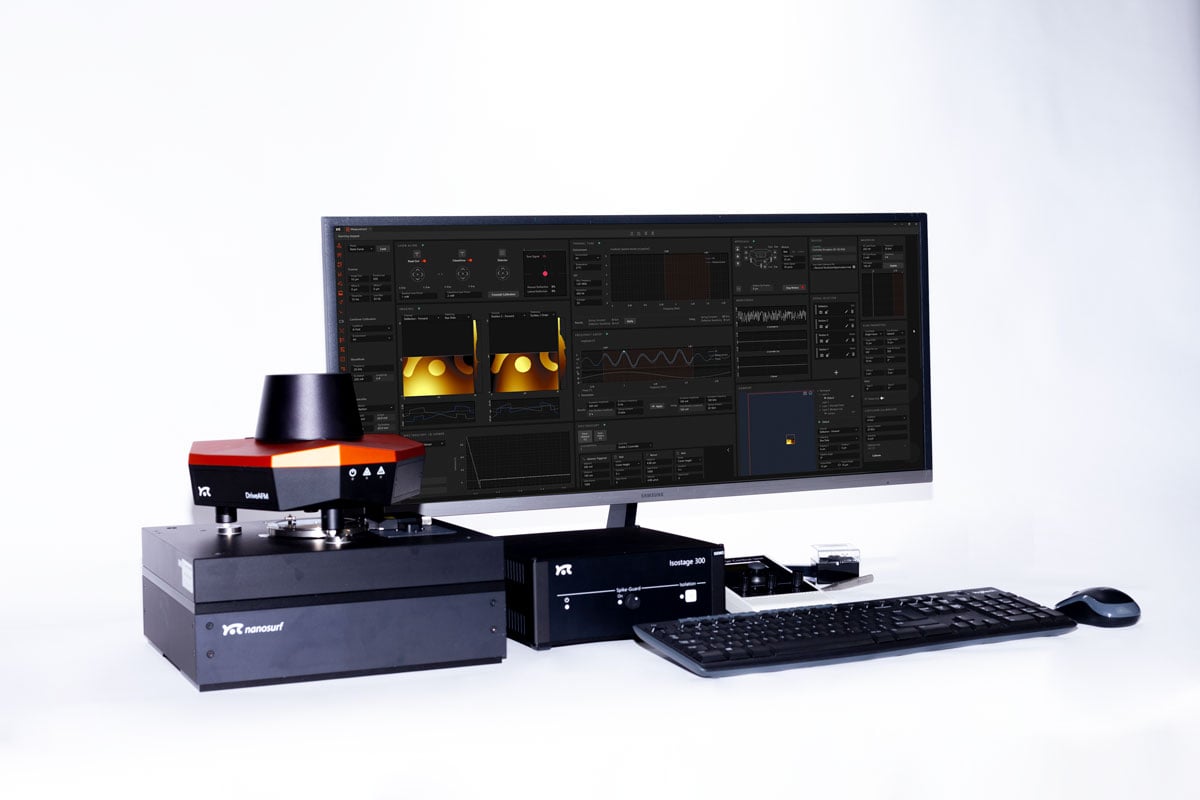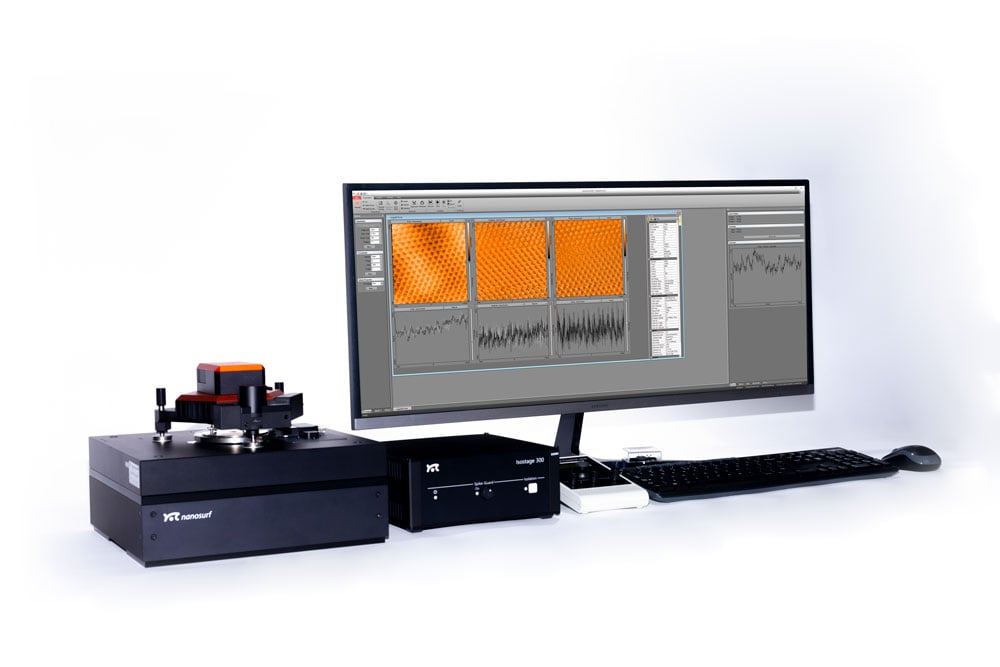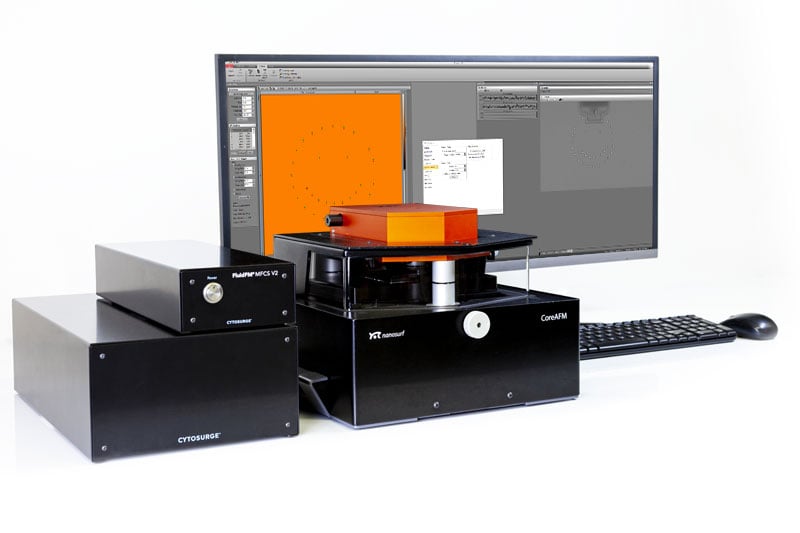Materials Science & Characterization
Since its creation, AFM has been the tool of refence for materials science research. This is because AFM can provide local measurements of physical quantities with nanoscale resolution, thus allowing better understanding of the materials and physical phenomena. The capability of AFM to measure minute forces via a physical object - an AFM tip, allows it to interact with samples in a number of ways, providing mechanical, electrical, and magnetic information on a range of scales that varies from single molecules to hundreds of micrometers. Moreover, the capability of AFM to operate in a wide range of environmental conditions, allows researchers to study the influence of temperature, humidity, and gases onto their samples.
- All-in-one tool for material science
- Characterization of nano-electrical and nano-magnetic properties
- Minimal sample preparation
- Provides quantitative values for mechanical and electrical measurements

Polymers and Composites
Understanding the nanoscale structure within polymers is crucial for assessing their macroscopic mechanical performance, and AFM excels in this regard by providing high-resolution imaging based on mechanical interactions with the sample. It enables researchers to explore mechanical properties down to the single molecule level, facilitating the development of accurate models. Moreover, AFM allows for in-situ studies of mechanical properties under various environmental conditions, such as temperature and humidity fluctuations, offering unique insights into polymer behavior. Additionally, our platform delves into how AFM assists in optimizing the electrical properties of composites at the nanoscale, enabling researchers to fine-tune material recipes for desired outcomes using techniques like spreading resistance and capaci,tive measurements.

Self-Assembled Layers and Structures
Self-assembled (mono-)layers and structures are of key importance for a number of industries and research topics, however, there are few tools that allows studying them with the delicate touch only AFM can provide. The fact that AFM measures the forces between the sample and the probe, allows to study samples down to atomic resolution. In addition to not being destructive, and requiring close to zero sample preparation, AFM also allows for in-situ measurements in a range of enviroments, including liquids. This allows to study not only the final structures, but also the formation mechanism.

2D Materials Research
In recent years, the research into 2D materials has expanded at a rate not seen before in any other materials research topic. New materials appear almost daily, making it impossible to keep up with the characterization. This is why AFM is the number one tool for 2D materials, since it allows fast in-situ characterization in ambient, inside of gloveboxes and in vacuum. The versatility of AFM, to study mechanical, electrical, magnetic or friction properties, makes it ideal for this fast-moving area of research, where topics emerge and become highly relevant in very short periods of time.

Metals and Alloys
Understanding the magneto-electric properties of metals and metallic materials is key to our modern society. From sensors to structural elements, metals are present in almost every aspect of modern technology, and AFM is the most versatile tool for their study. Not only because electrical and magnetic macroscale properties depend on the nanoscale behaviour, but also because due to miniaturization, some properties need to be studied in-situ at the nanoscale level. Things like local conductivity, phase separation, magnetic domains, are all accesible through AFM.

Ceramics and Glass
Whether it is creating protective coatings, resisting high temperatures or high performance electronics, ceramics are the answer. Wheter it is for research or quality control, AFM provides the range of characterization techniques needed. From electrical characterization with nanoscale resolution to the effectiveness of coating materials, passing thorugh roughness and friction, AFM can cover them all.

Example AFM Measurements
#{ row.name }
There are no items to display.
Resources
#{ item.resourceType }
#{ item.date_text_field }
#{ item.name }
#{ truncateText(item.metadescription) }
#{ item.readmoretext }No posts available
Recommended AFM Systems
DriveAFM
The DriveAFM equips your lab with a powerful suite of functionalities for exploring a wide range of materials, from small or ultra-flat structures to tens of microns sized features. WaveMode technology provides a reliable and robust platform for high-resolution imaging and characterization, while advanced electrical measurement features enable in-depth analysis of material properties. Furthermore, the DriveAFM's compatibility with glove box environments allows you to investigate air-sensitive materials under precisely controlled atmospheric conditions, ensuring reliable and repeatable measurements. This combination of advanced functionalities positions the DriveAFM as a versatile and powerful tool for propelling your materials research endeavors.

FlexAFM
The FlexAFM thrives in materials science applications due to its well thought our design and comprehensive suite of modes. For researchers working with air-sensitive samples, the FlexAFM's glovebox compatibility offers a significant advantage, ensuring sample integrity throughout experimentation. Furthermore, its electrical characterization capabilities, coupled with robust imaging and user-friendly operation, empower materials scientists to conduct in-depth analysis and streamline their workflows. This combination of features positions FlexAFM as a powerful tool for researchers in fields like energy materials and electronics, providing them with a versatile platform to explore the properties of novel materials.

CoreAFM
Designed with user-friendliness and adaptability in mind, CoreAFM integrates the core functionalities of a research-grade AFM into a single, versatile platform. This combination of ease of use and robust performance makes it well-suited for a broad spectrum of materials science applications and related fields. Equipped with powerful imaging capabilities and precise electrical characterization modes, CoreAFM empowers researchers with a comprehensive toolset, ideal for tackling demanding research projects while remaining budget-conscious.
